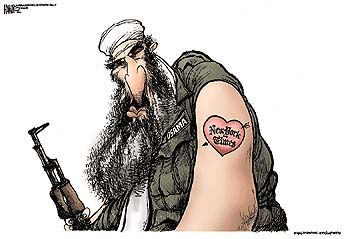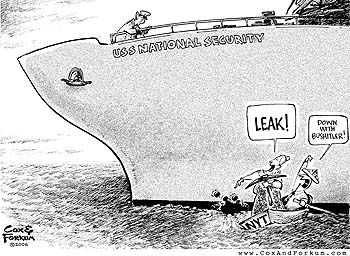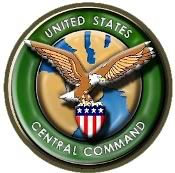It's In "Public Interest" To Know Who Leaks Secrets
NY Times Disclosure No Big Deal?

Seems the left is busy today trying to pooh-pooh the idea that the NY Time's front page splash revealing the perfectly legal program to monitor terror funding is nothing new. In an attempt to derail criticism of the NY Times, they cite a Boston Globe (a paper which is owned by the New York Times) story which describes how various elements of monitoring terror funding have been long known. Of course that defense is tantamount to an admission that the NY Times apparently decided to recycle old news in another naked attempt to stir up fears of civil liberties being violated by the Bush Administration.

And as usual, it's a disingenuous argument. Adding new layers to information on sources and methods that is already too public merely makes the awareness of our enemies all the more keen.
Our "Public Interest": The Right to Know Who Leaks.
The New York Times seeks to elevate itself above our elected political leadership who has the responsibility to keep us safe and wage war against our enemies claiming that there exists a "public interest" in this matter.
But what about the public interest in knowing what motivates those who leak national security secrets and the motives of those who brazenly publish them. Would it not be in the public interest to examine those motives? Doesn't the public have a right to know if there are people in this country actively undermining our efforts to be effective in waging the war on terror?
As an answer to all those who think this story, is nothing new or not damaging, I recommend the letter from outgoing Treasury Secretary John Snow. From the Department of the Treasury web site:
Mr. Bill Keller, Managing Editor
The New York Times
229 West 43rd Street
New York, NY 10036
Dear Mr. Keller:
The New York Times' decision to disclose the Terrorist Finance Tracking Program, a robust and classified effort to map terrorist networks through the use of financial data, was irresponsible and harmful to the security of Americans and freedom-loving people worldwide. In choosing to expose this program, despite repeated pleas from high-level officials on both sides of the aisle, including myself, the Times undermined a highly successful counter-terrorism program and alerted terrorists to the methods and sources used to track their money trails.
Your charge that our efforts to convince The New York Times not to publish were "half-hearted" is incorrect and offensive. Nothing could be further from the truth. Over the past two months, Treasury has engaged in a vigorous dialogue with the Times - from the reporters writing the story to the D.C. Bureau Chief and all the way up to you. It should also be noted that the co-chairmen of the bipartisan 9-11 Commission, Governor Tom Kean and Congressman Lee Hamilton, met in person or placed calls to the very highest levels of the Times urging the paper not to publish the story. Members of Congress, senior U.S. Government officials and well-respected legal authorities from both sides of the aisle also asked the paper not to publish or supported the legality and validity of the program.
Indeed, I invited you to my office for the explicit purpose of talking you out of publishing this story. And there was nothing "half-hearted" about that effort. I told you about the true value of the program in defeating terrorism and sought to impress upon you the harm that would occur from its disclosure. I stressed that the program is grounded on solid legal footing, had many built-in safeguards, and has been extremely valuable in the war against terror. Additionally, Treasury Under Secretary Stuart Levey met with the reporters and your senior editors to answer countless questions, laying out the legal framework and diligently outlining the multiple safeguards and protections that are in place.
You have defended your decision to compromise this program by asserting that "terror financiers know" our methods for tracking their funds and have already moved to other methods to send money. The fact that your editors believe themselves to be qualified to assess how terrorists are moving money betrays a breathtaking arrogance and a deep misunderstanding of this program and how it works. While terrorists are relying more heavily than before on cumbersome methods to move money, such as cash couriers, we have continued to see them using the formal financial system, which has made this particular program incredibly valuable.
Lastly, justifying this disclosure by citing the "public interest" in knowing information about this program means the paper has given itself free license to expose any covert activity that it happens to learn of - even those that are legally grounded, responsibly administered, independently overseen, and highly effective. Indeed, you have done so here.
What you've seemed to overlook is that it is also a matter of public interest that we use all means available - lawfully and responsibly - to help protect the American people from the deadly threats of terrorists. I am deeply disappointed in the New York Times.
Sincerely,
John W. Snow, Secretary
U.S. Department of the Treasury
Also posted at Mike's America
































<< Home